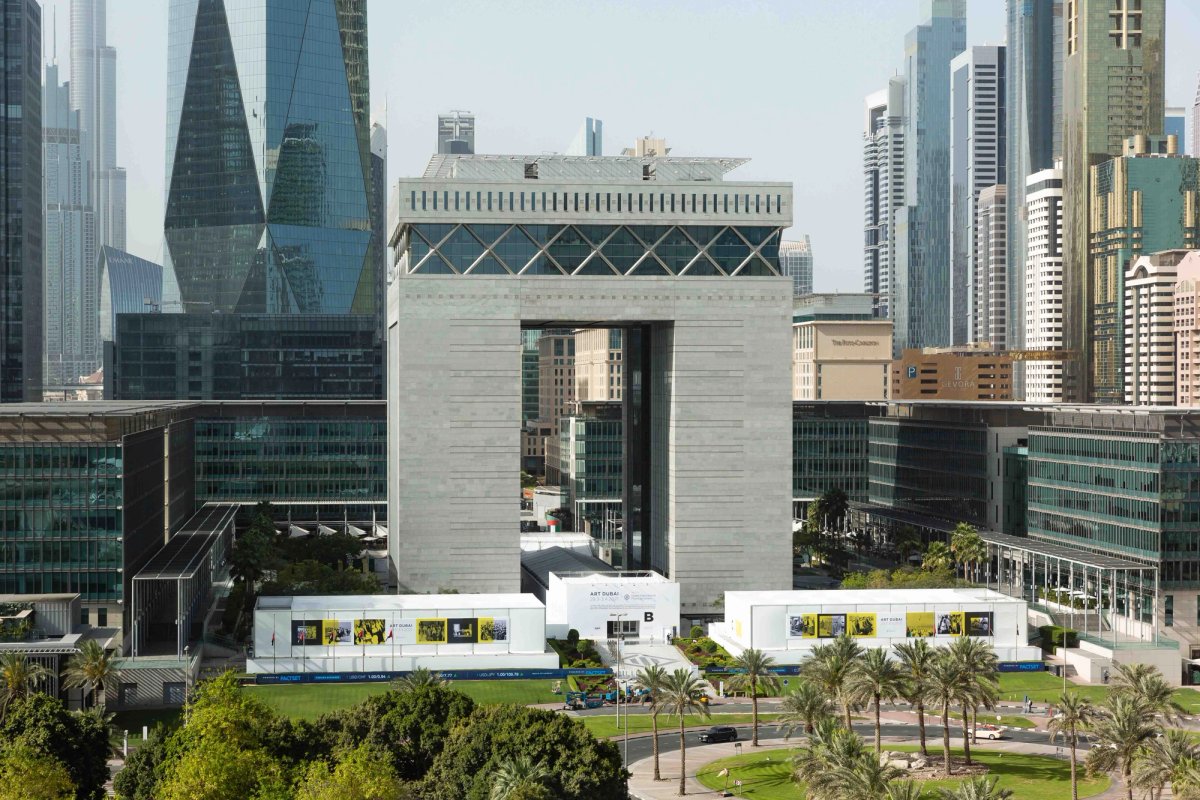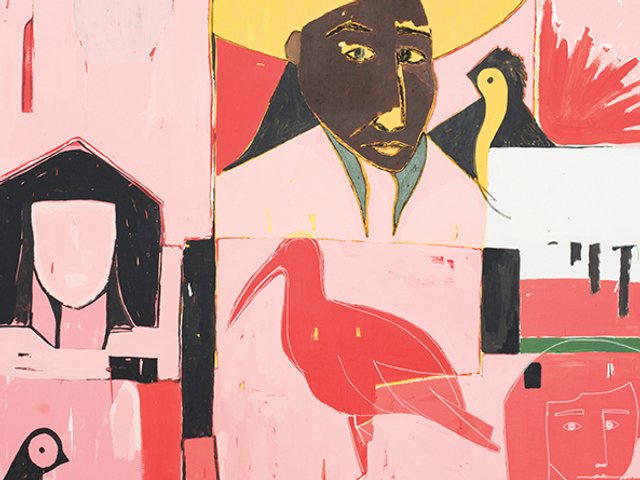For most of us, the idea of going to an art fair—one in person, not on screen—seems like a memory from another life, such is our currently confined existence.
But, in the heart of the Arabian Peninsula, one is going ahead—Art Dubai, which opens today (until 3 April) with 50 galleries from 31 countries amid a busy art week in the city.
The road has not been smooth. Only last month, as Covid-19 cases in the emirate surged and travel restrictions clamped down, the fair’s organisers announced it would have to move from its usual beachside location at the Madinat Jumeirah hotel to a purpose built, temporary structure in DIFC, Dubai’s financial district, in order to comply with Covid safety regulations. The event was also downsized from 86 to 50 galleries and delayed from its original dates of 17 to 20 March to allow more time to prepare.
“That decision had to do with a changed reality: the situation with travel from the UK to the UAE, making sure the fair was a safe environment,” says the fair’s artistic director Pablo del Val. “For us, going ahead with a physical event responsibly is a must for our [gallery] community.”
But most unusual is the new fee structure: in order to persuade galleries to take a chance and exhibit, Art Dubai is charging exhibitors nothing up front. Instead, the organisers will take 50% of any sales made, up to the value of the stand. “We need to support participants and remove the stress of having to pay in advance, because as a gallery you never know what sales you’re going to make [at a fair],” del Val says. He adds that the fair makes special efforts to introduce collectors to galleries: “We ask collectors what they are looking for before the fair and try to make these meaningful introductions... collecting in the Emirates has grown during the pandemic as people have not been travelling, they have been concentrating more on supporting the local. When you travel you get very distracted, so people have been concentrating more on what is going on in Dubai.”
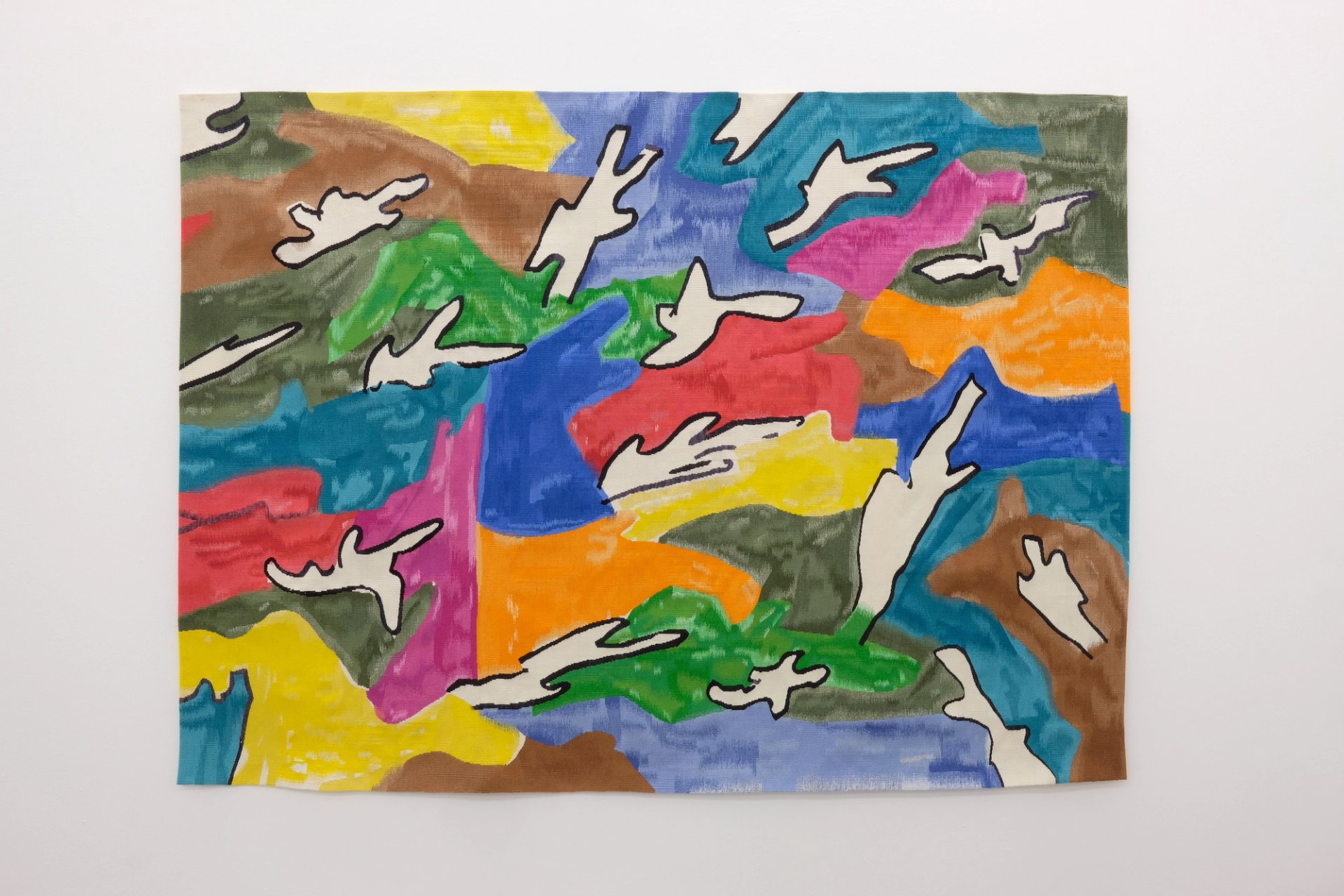
Etel Adnan's handwoven tapestry La Ronde Des Oiseaux (2019). Courtesy of the artist and Sfeir-Semler Gallery Beirut/Hamburg
The fair is also offering free art storage for three months after the fair (with selected shippers) and any galleries that have cancelled their participation will have the fees they have paid rolled over to the 2022 Art Dubai edition. On how the fair is actually affording to mount an expensive event without down payments from galleries, del Val says: “I’m the artistic director so I’m not very involved with the numbers but the company is very strong. I think it’s the structure that Art Dubai has, the supportive stake-holders, everyone was very keen for the fair to go ahead.”
Many galleries are still unable or unwilling to travel to the UAE, and for them there is the option of a smaller 25 sq. m. “remote participation” booth (similar to Art Basel in Hong Kong’s “ghost booth” idea), manned by staff supplied by the fair so their own employees do not have to travel. Seven galleries have chosen this option, sending works to be shown on smaller stand. They are: Experimenter, Kristin Hjellegjerde, Galerie-Peter-Sillem, Silverlens, Sfeir-Semler Gallery, TAFETA and Vin Gallery.
On how this works, del Val says: “I discuss the hanging with the gallery and supervise it. Then we provide the gallery with a person responsible for the stand—someone with a connection with the Dubai art community.” The gallery director or owner can talk to any interested client over Zoom and close a deal remotely.
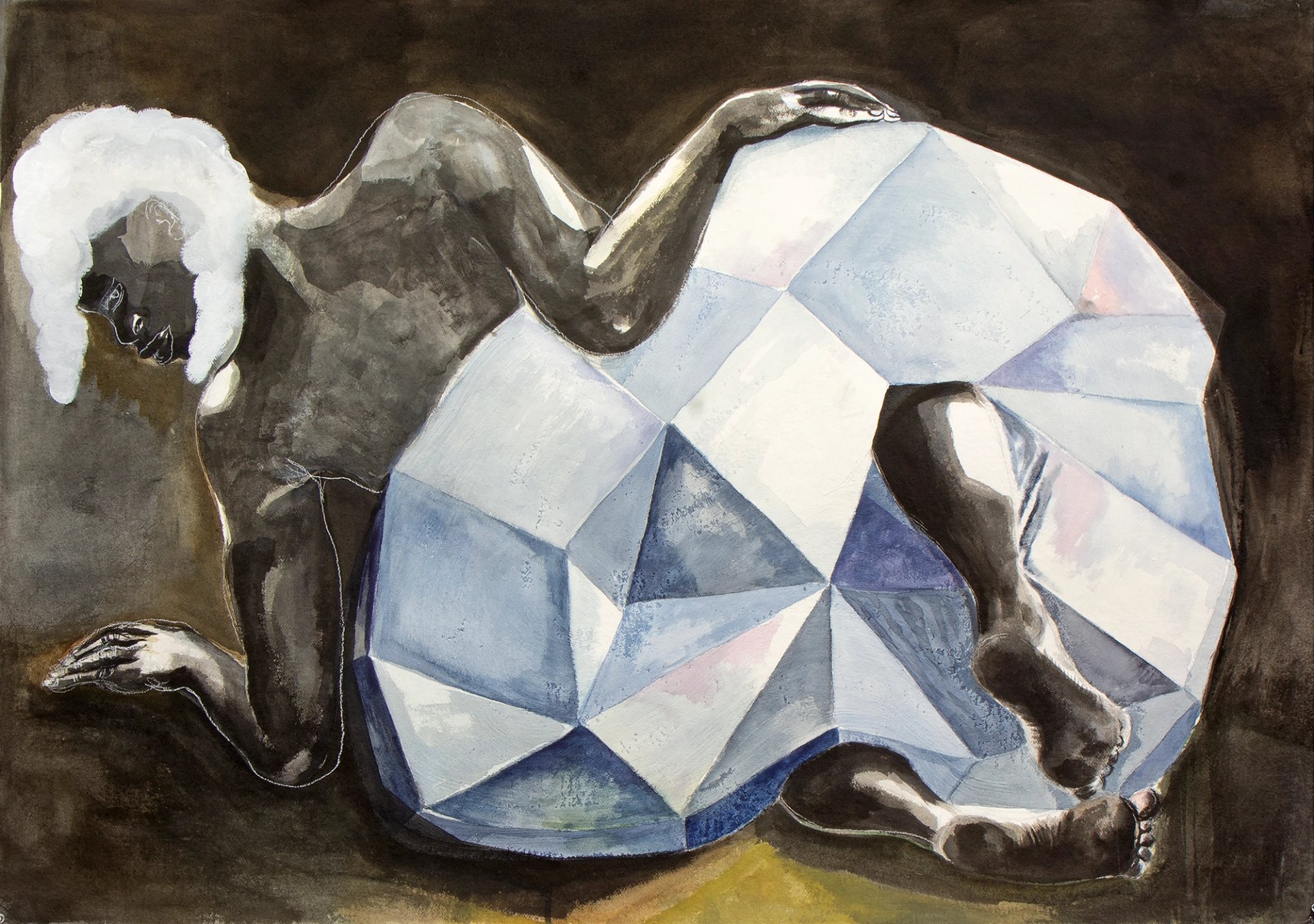
A work by the Nigerian-American painter Nkechi Ebubedike, on show with Tafeta Courtesy of the artist and Tafeta
Ayo Adeyinka, owner of the London-based African art gallery Tafeta, says he decided to do a remote participation stand because of the complications around travelling from the UK: “I am not at all keen on spending 10 days in a quarantine hotel!” Although the fair has provided a volunteer to man the fair, he says “we have also sent over a consultant based in Paris who we work closely with” Adeyinka is showing three contemporary artists: Babajide Olatunji Niyi Olagunju and the Nigerian-American painter Nkechi Ebubedike.
Of the “pay nothing up front” policy, Adeyinka says: “It’s certainly favourable from a cash flow perspective and might incentivise the fair organisers to care more about sales at the fair. Will it work? I certainly hope so! If it does, it’s a win-win.”
Another London-based remote participator, Kristin Hjellegjerde, is exhibiting the Iraqi artist Afifa Aleiby and says she sent over “a detailed description of how we would like the booth curated, with mustard coloured walls”. Of the payment plan, Hjellegjerde says “it’s a great initiative and makes us feel less worried about not being there, which of course I would have done everything in my power to do had there not been a hotel quarantine upon return. The Art Dubai team has already put artwork by the artist on hold and we have collectors coming to view the work in person so I am confident it will benefit us all.”
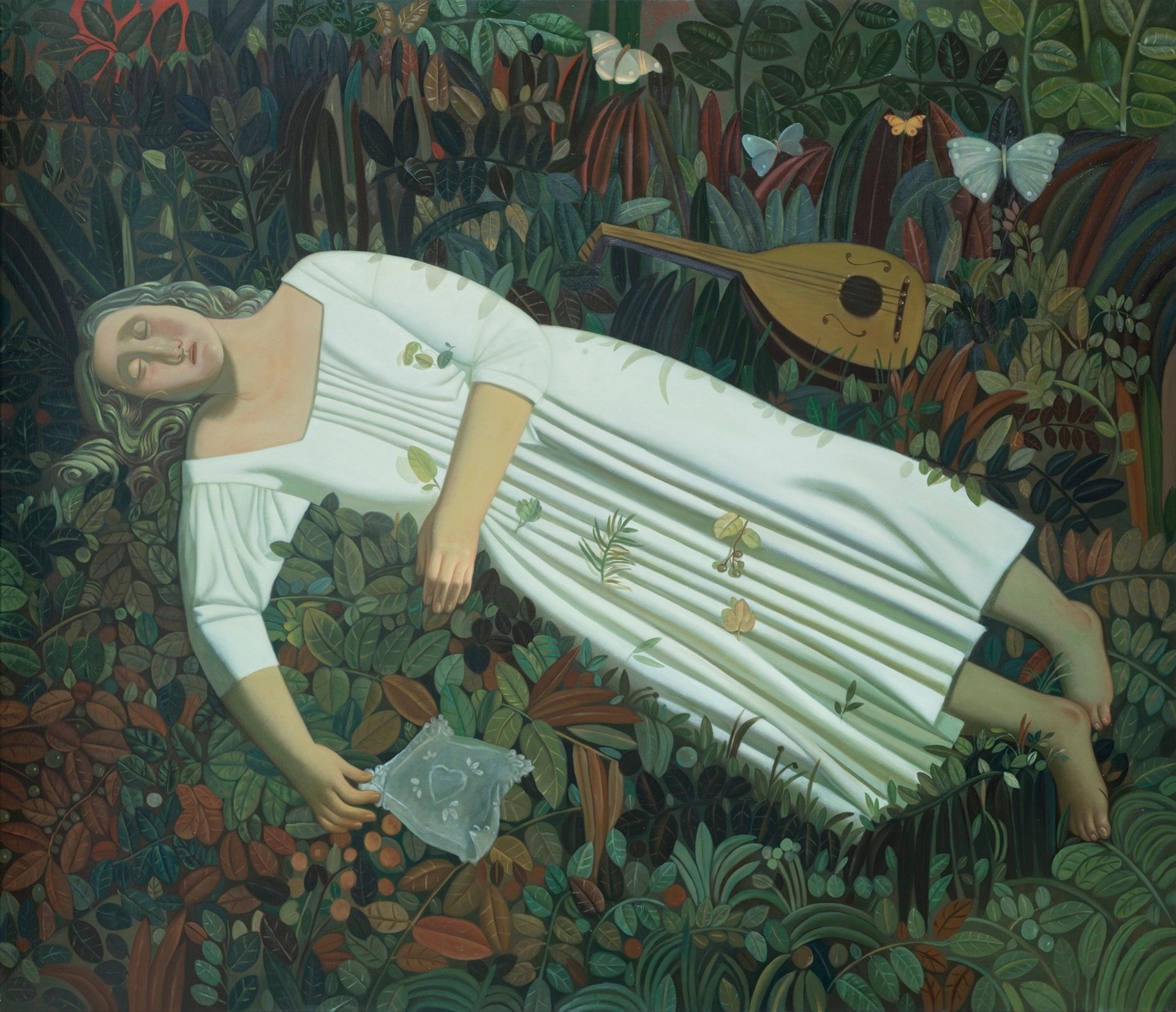
A painting by the Iraqi artist Afifa Aleiby, on show with Kristin Hjellegjerde Gallery. Courtesy of the Artist and Kristin Hjellegjerde Gallery
Lorenzo Ronchini of the London gallery Ronchini is, however, travelling out in person. “At the fairs, I not only get to meet with clients but I get to see other galleries and what they are showing,” he says. “While I absolutely understand the need to close and postpone fairs in effected countries, Art Dubai has really provided unparalleled safety measures including two PRC tests while I am there on site. Most of the gallerists I know who are attending, including myself, have received the vaccine.” Ronchini is exhibiting works that “don’t resonate digitally”, those “that might be overlooked on a computer screen.” He adds: “I’m really excited to get back to the in person viewing—showing people art and helping them appreciate it is my true passion and I’ve missed it.”
The London and Addis Ababa gallery Addis Fine Art is also participating in person. “Our main gallery is in Addis Ababa, which is in close proximity to Dubai, so logistically we haven’t been hindered by UK travel restrictions and our co-founder Mesai has been able to attend the fair,” its co-founder Rakeb Sile says. “Trade hasn’t stopped between our nations and both countries have been vigilant with rapid testing, so we are happy that we have been able to continue with our plans.” This is the fourth time Addis Fine Art has participated at the fair and it is showing works by four artists from across Ethiopia and its diaspora—Tadesse Mesfin, Addis Gezehagn, Tsedaye Makonnen and Tizta Berhanu. A performance by the gallery’s newest artist, Washington DC-based Tsedaye Makonnen—one of several live art happenings planned for around the city—has, however, had to be cancelled.
The majority of galleries participating in person, however, are from the UAE or neighbouring countries in the Middle East. Sunny Rahbar is the co-founder of The Third Line, based in Dubai’s Alserkal Avenue which has already been thronging with people for its art week, a warm-up for the fair itself. She says of the atmosphere in Dubai at the moment: “It feels like everything is back to a new normal which is positive and feels good again but we do also have to remember that we are still amidst a pandemic and that it’s not fully over. Though the fact that the vaccines are now being administered to everyone and that safety precautions are in full effect it does feel very very safe here.”
The Third Line has just opened two shows, of Tarek Al Ghoussein and Yasiin Bey’s album Negus and Rahbar says they have had collectors visiting from the US (“mostly for Art Dubai”) but predominantly from “neighbouring countries and also countries that don’t face a quarantine situation upon their return.”
Unsurprisingly, Rahbar also thinks the pay nothing up front scheme this year is great: “I wish more art fairs considered it, basically the fair is taking the risk that normally the galleries take upfront. It’s quite a novel proposal and I realise it’s likely not possible for other fairs to adopt this model but why shouldn’t this be considered or at least something more along these lines versus standard models.”
She adds: “The world has changed and so will the models of engagement whether financial or social. I think we all need to adapt in order to continue to do what we do.”


